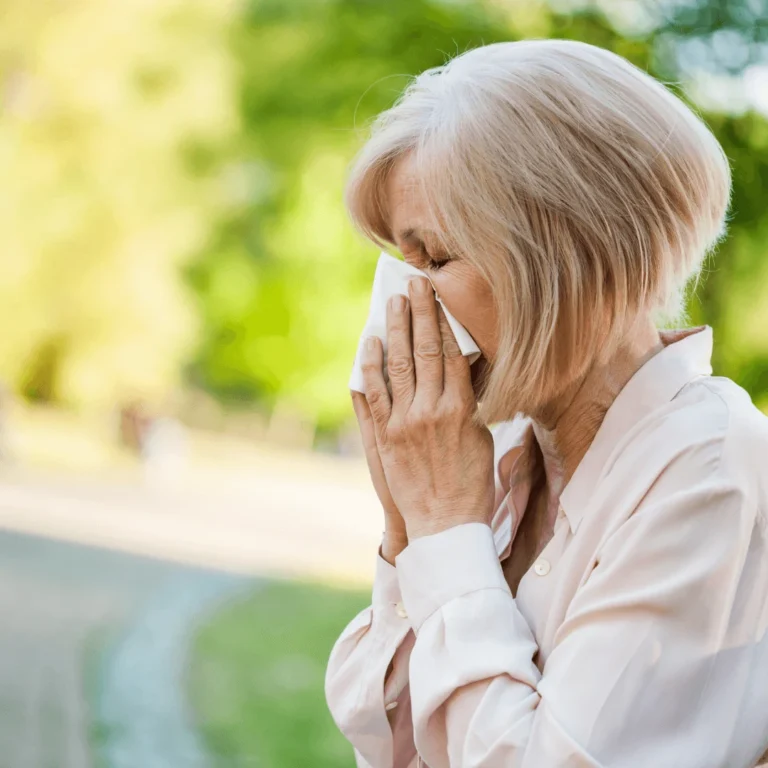Seasonal allergies don’t just bring sniffles. For seniors, they can disrupt sleep, limit independence, and worsen other conditions. But here’s what most people miss: these allergy symptoms often look like something else.
Is it really allergies? Or something more serious? Keep reading and you’ll know exactly what to watch for.
How Allergies Show Up Differently in Older Adults
You might expect itchy eyes and a runny nose—but that’s not always what shows up in seniors. Instead, many feel:
- Chronic fatigue
- Irritability
- Difficulty breathing
- Poor sleep
And because these symptoms overlap with other health concerns, allergies often go unnoticed. That’s where the trouble starts.
Common Allergy Triggers in Each Season
Spring and fall bring more than colorful trees and blooming flowers. They also bring:
Spring triggers:
- Tree pollen
- Grass pollen
Fall triggers:
- Ragweed
- Mold spores from leaves and damp areas
Year-round threats:
- Dust mites
- Pet dander
- Indoor mold
Even inside the home, allergens can be just as intense as those outside. And that’s why management isn’t just seasonal—it’s constant.
What Makes Seniors More Vulnerable
Several factors make older adults more sensitive to allergens:
- Weaker immune response: The body isn’t as quick to react and recover.
- Existing conditions: Asthma, COPD, and heart problems can worsen during allergy flare-ups.
- Medications: Some drugs may intensify allergic reactions or make symptoms harder to spot.
It’s a perfect storm—and it often goes untreated.
What You Can Do to Stay Ahead
You can’t control the seasons, but you can control your space and your habits. Start here:
Close the windows
It’s tempting to enjoy the breeze, but pollen can sneak in and stick to everything.
Use an air purifier
Look for one with a HEPA filter to trap airborne irritants.
Change clothes after going outside
Pollen clings to fabric. A fresh outfit makes a real difference.
Wash bedding often
Especially during peak seasons, clean sheets can reduce nighttime exposure.
Track local pollen counts
If levels are high, try to stay indoors during mid-morning and early evening.
When It’s Time to Talk to a Doctor
If symptoms are sticking around or affecting your sleep and breathing, don’t guess—ask. A doctor can help confirm whether it’s allergies or something else entirely.
They may recommend:
- Antihistamines
- Nasal sprays
- Allergy testing
- Environmental adjustments
Allergy symptoms might be manageable—but only if you know what you’re really dealing with.
Our Happier at Home caregivers can help to monitor for allergy symptoms and help to keep your loved one’s home pollen-free in the Springtime. For help, call us today!
Published June 2024 • Updated August 2025
Reviewed by Debbie Marcello, Founder & CEO of Happier at Home
This content is for informational use only and does not replace medical advice.


